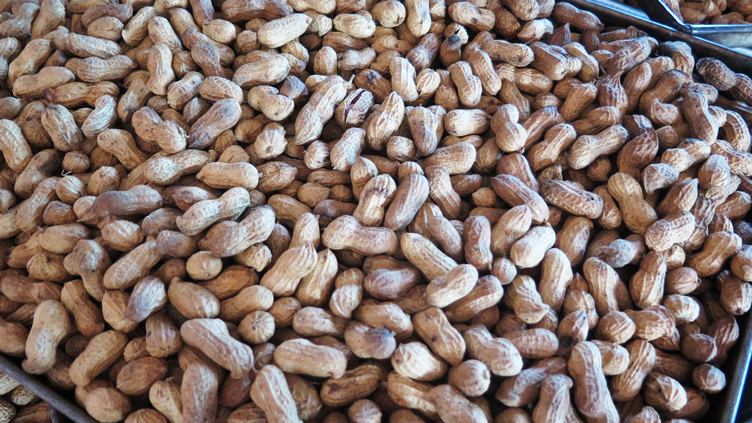FROM NUTS TO RICHES
Peanut is empowering the rural women and farmers in Alcala, Cagayan and enabling them to bring about positive change in their community.
Alcala, a third-class municipality in the province of Cagayan, considers peanut as one of its most abundant cash crops. Because of this, the local government unit (LGU) has chosen peanut as its flagship item for the One Town, One Product (OTOP) program, a government initiative to promote local goods and products of towns, cities, and provinces and assist community-based enterprises.
It was in 2007 when the municipal government of Alcala collaborated with Alcala Women’s Rural Improvement Club to promote peanut as its flagship product.
Alcala Women’s Rural Improvement Club (AWRIC) Manager Emma Battung was still working for the LGU then. She discussed this with their members and mobilized them in the process.
In exchange of monetary and technical support, AWRIC gladly accepted LGUs offer knowing that the project will benefit its members including farmers and the rest of Alcala as well.
Detour
Established in 2003, the Alcala Women’s Rural Improvement Club was initially involved in lending money to its members.
“Our members borrow money from our cooperative since we have lower interest rates than the usual banks,” said Emma. The group would also offer food catering services on the side to augment their income.
After discussion with the town mayor, AWRIC switched to selling peanut products.
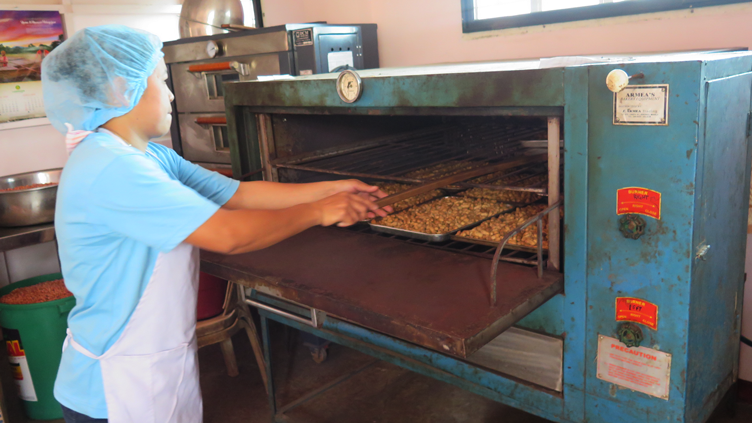
“We were asked to work with the LGU to lead the production of our goods for OTOP. Instead of plain peanuts, we were encouraged to sell a wide array of products to get more clients and have more income,” Emma shared.
The group got interested because peanuts would be sourced within the municipality and the job opportunities it could bring to members of its organization.
“We knew this would be beneficial to the locals of Alcala by providing employment and promoting our town,” said Emma.
AWRIC later on received Php 20,000 from the LGU to kick off the business.
Emma admitted that on the onset, they had no idea how to attract more buyers. The group started with just one product: adobong mani (fried peanut with garlic). This was the only product that they were familiar with. Emma said they were still learning then, and were clueless on the best product that would make it big in the market.
She mentioned that fried peanuts were too oily because of the process they used. After some time and several trainings from DTI and other government agencies, they decided to change the process and offered something better for their buyers. The group started offering baked peanuts, instead of the oily peanuts they used to prepare.
Twelve years on, their peanut products have become popular among tourists visiting the town. They have also become staple items in many groceries and stores in the province of Cagayan.
Today, the group offers various products such as peanut butter, caramel coated peanut, baked peanut, and polvoron peanut.
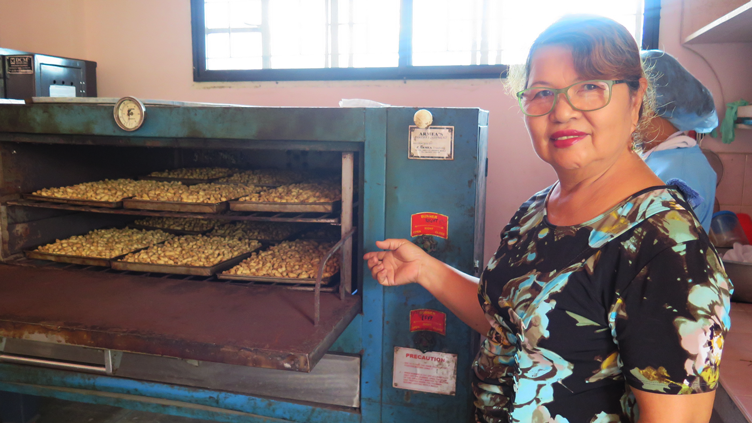
Helping themselves while helping others
Putting up a community-based business stimulates the economic activities in the town of Alcala. Since the raw materials are locally sourced, it also means lower carbon footprint and reduced costs on the part of the cooperative.
“We are not just helping ourselves. We are also helping our farmers because we buy their peanuts at a reasonable price, while we provide employment to our members,” said Emma.
After the initial support from the LGU, the enterprise also received assistance from DTI, Department of Science and Technology (DOST), Department of Agriculture (DA), and Department of Agrarian Reform (DAR). “We learned that we need to improve the packaging of our products, too. The packaging is the first thing buyers will see,” said Emma.
They attended a series of marketing training, mainly sponsored by DTI.
AWRIC was also a beneficiary of DTI’s Shared Service Facilities (SSF) Project, which offers assistance to micro, small, and medium enterprises (MSMEs) through the provision of machinery, systems, skills, and knowledge—all under a shared system.
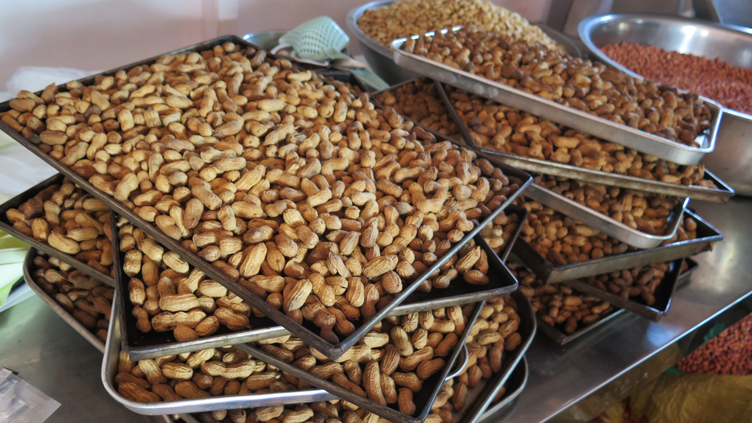
The SSF Project, according to Emma, has helped their group increase productivity and efficiency.
After they have managed to improve the lineup of products and packaging, they started joining trade fairs organized by DTI. Regional and national trade fairs, according to Emma, are the perfect venues to get institutional clients. After a few years of joining trade fairs, AWRIC was also able to tap individual resellers as well who buy peanut products in bulk. Recently, online sellers have also been helping increase the visibility of their products.
“We would just send it through a delivery service, and they remit the payment through our bank account. It’s very convenient for us and the buyers,” Emma shared proving that distance is not an issue anymore in selling their products.
“We are proud of how our products have improved. We also value the health and welfare of our buyers, so we make sure that we buy quality raw materials only,” said Emma who mentioned that the peanuts they use undergo a safe and thorough process to avoid the presence of aflatoxin, a natural toxin often found in nuts that are not handled well.
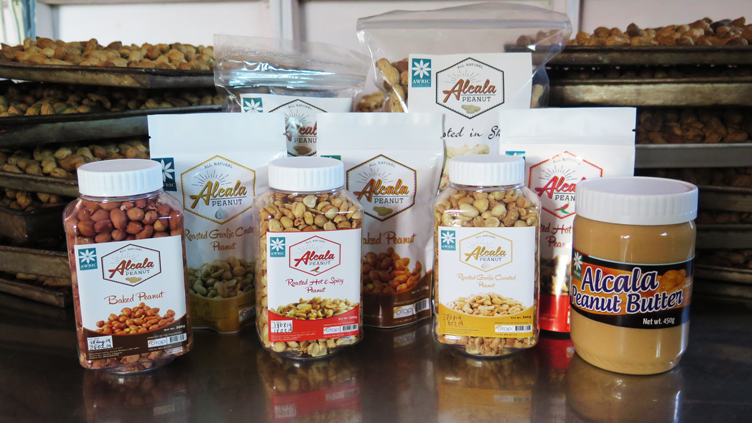
On top of the marketing and product development training, Emma’s team also learned the managerial side of running a business. They were also taught the basics of bookkeeping.
AWRIC aims to expand further, banking on enough resources and increased demand for their products. But for now, it wants to uphold the integrity and quality of their products while maintaining a good relationship with the farmers in Alcala and their regular buyers.
“Our main goal is to maintain the quality and safety of our products, while looking for ways on how to improve further,” said Emma adding that exporting to other countries is one of their ultimate goals.




